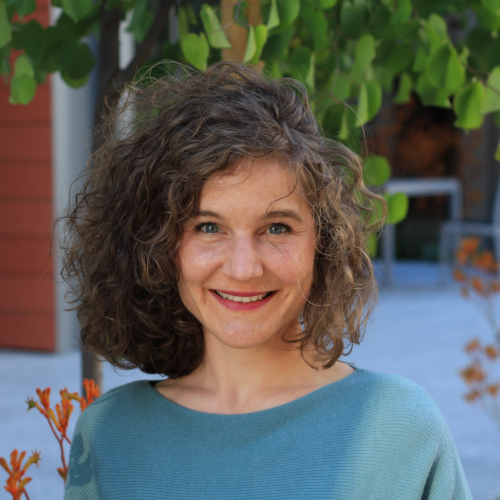Anna Belkina, MD, PhD
Boston University
Ina Stelzer, PhD
University of San Diego

Ina Stelzer, Ph.D., is a pregnancy immunologist, Assistant Professor at the University of California, San Diego (UCSD) in the Dept. of Pathology, and the Director of Reproductive Immunology at the Center for Perinatal Discovery (Depts. of Obstetrics/Gynecology, Pediatrics, and Pathology). Integrating her expertise in preclinical (mouse) models of pregnancy and translational systems immunology, research in her laboratory leverages state-of-the-art single cell proteomic techniques (suspension/imaging mass cytometry) and targeted neuromodulation to study (neuro-)immune adaptations in healthy and pathological pregnancies.
Talk: Mass cytometry for monitoring pregnancy progression and predicting preterm birth
Abstract: Preterm birth remains the major cause for morbidity and mortality under the age of five world-wide. 60% of all preterm births occur spontaneously, without prior clinical indication. New predictive approaches are needed to replace the inefficient tools currently available in the clinic. Spontaneous preterm labor with ensuing preterm birth is characterized by disturbances of the maternal immune adaptation to pregnancy. We hypothesize that immune responses in the maternal blood are a sensor for local processes of inflammation and labor long before a pregnant woman presents with clinical symptoms.
In her presentation, Ina will cover how measuring immune profiles with mass cytometry in longitudinal studies supports the characterization of maternal immune dynamics in multi-omics approaches to unravel predictive biomarkers and pathobiology of pregnancy complications.
Mark Sussman, PhD
San Diego State Univeristy Heart Institute
Travis Wiles, PhD
University of California Irvine

Dr. Travis Wiles’ research program aims to piece together a multi-scale view of how host–microbe systems form and function. This goal was inspired by his past work in the fields of bacterial pathogenesis and microbiome research, in which he studied the highly contextual and dualistic (i.e., beneficial vs. antagonistic) nature of host–microbe relationships. During Dr. Wiles’ doctoral work at the University of Utah he combined classic cellular microbiology approaches and a novel animal model to dissect the virulence mechanisms of extraintestinal pathogenic E. coli. For his postdoctoral work at the University of Oregon he used live imaging and synthetic biology to uncover factors that shape the ecology and biogeography of gut bacterial populations. Now, in Dr. Wiles’ laboratory at the University of California, Irvine, he is innovating new experimental schemes to define the mechanisms that drive microbial life cycles and understand how the ecology of microbiomes fuels the emergence and spread of antibiotic resistant bacteria.
Talk: Life, death, & symbiosis: Phollowing the lives of gut bacteria and their viruses
Abstract: Bacterial viruses (often referred to as ‘phages’) can be viewed as architects of microbial communities. Phages can eliminate certain bacterial lineages through lytic replication whereas during lysogenic replication they can rewire the biology of their bacterial hosts. There are many open questions about the factors that regulate phage replication modes, especially within the dynamic and complex context of gut microbiomes associated with humans and other animals. A challenge to piecing together phage life cycles is that they ‘live’ at the nanoscale, making it difficult to directly observe their activities and behaviors. To address this challenge, we developed an approach called “Phollow”, which uses a collection of new genetic tools to fluorescently mark phage virions within living bacterial cells. In my talk I will show how Phollow expedites the screening of potential regulators controlling phage lytic replication by live imaging and spectral flow virometry. I will further share how Phollow enables the direct visualization of phage within the intestines of live zebrafish.
Suhas Sureshchandra, PhD
University of California Irvine

Suhas Sureshchandra received his PhD in Biological Sciences from UCI in 2020. Currently he is a postdoctoral fellow in Lisa Wagar’s lab (UCI) investigating the role of T follicular helper cells in the context of vaccination using human immune organoids.
Talk: Maternal and fetal immune adaptations with pregravid obesity
Abstract: Maternal obesity is a significant risk factor for obstetric complications such as preterm labor, preeclampsia, and chorioamnionitis. Furthermore, pregnant women with obesity are more prone to infections during pregnancy and following postpartum procedures, suggesting a compromised immune system. We hypothesized that the immune adaptations associated with a healthy gestation are disrupted with obesity. Our analyses indeed suggest that a healthy pregnancy is associated with systemic changes indicative of innate immune activation. Specifically, monocyte responses to LPS increased with gestational age in lean subjects, accompanied by enhanced chromatin accessibility that poised cells for a greater response. This trajectory was disrupted in pregnant women with obesity, resulting in attenuated monocyte responses to LPS. Furthermore, epigenetic, metabolic, and functional measurements strongly support the induction of immunotolerance in both maternal and cord blood monocytes. Using a rhesus macaque model of western-style diet-induced obesity, we further demonstrate that this defect persists in fetal peripheral monocytes and tissue-resident macrophages during gestation. These findings shed light on the developmental origins of health and disease (DOHaD) hypothesis and highlight a potential mechanism of fetal protection from obesity-induced maternal inflammation.
